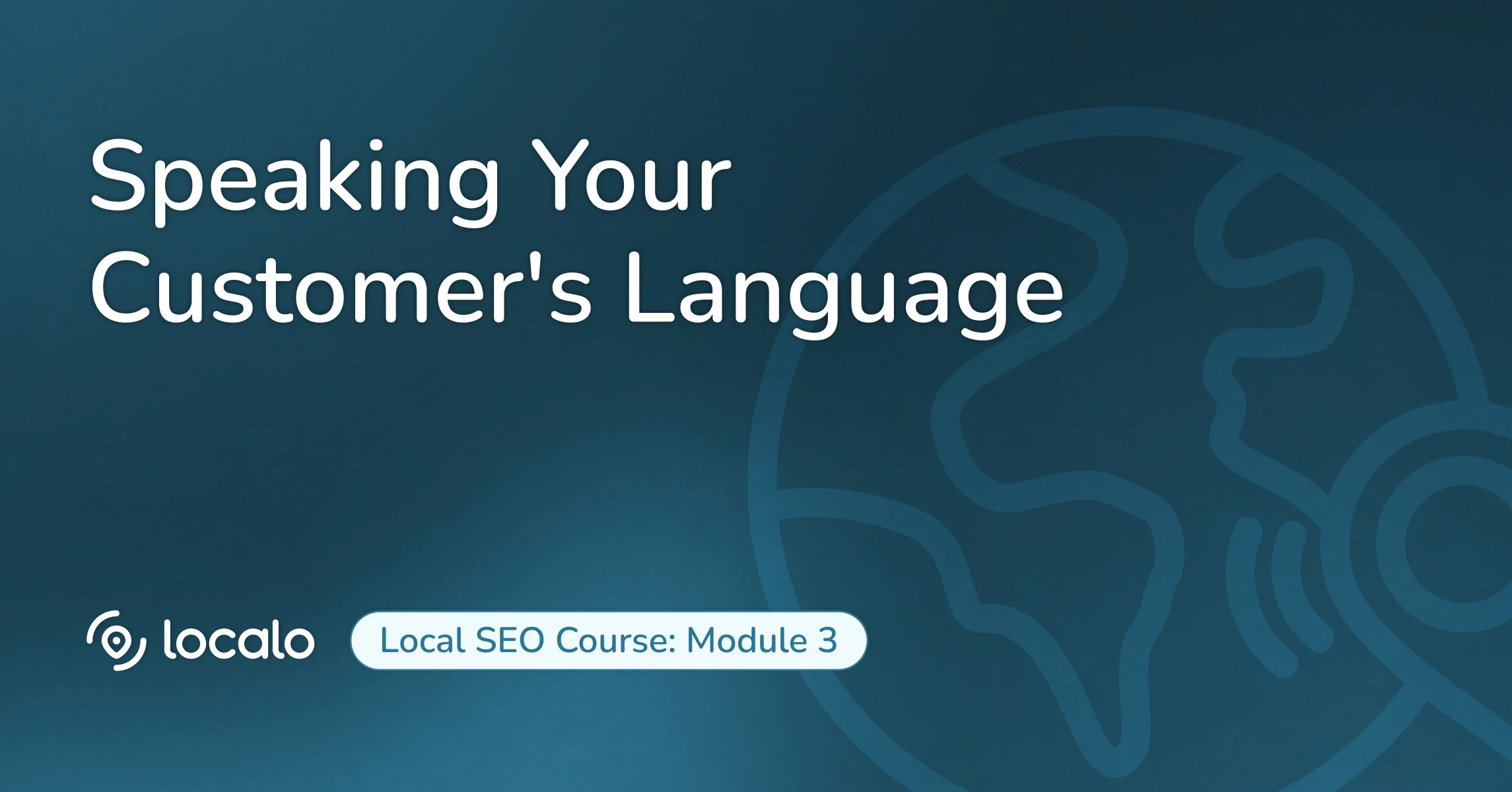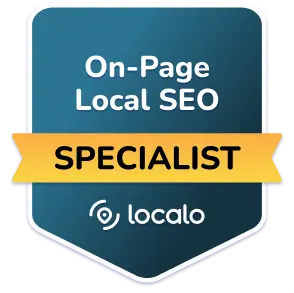Here’s the truth most business owners miss: successful keyword research isn’t about finding the highest search volume terms. It’s about discovering exactly how your customers describe their problems when they need help RIGHT NOW.
Understanding Modern Search Behavior
Search has evolved dramatically. People don’t just type “plumber.” They ask complete questions or describe their exact situation:
Traditional searches: “dentist” Modern AI-influenced searches: “dentist who takes my insurance and has weekend hours”
Traditional searches: “auto repair” Modern conversational searches: “my car is making a grinding noise when I brake”
This shift means we need to think beyond simple keywords and focus on the complete customer journey.
Step 1: Become a Customer Conversation Detective
Before touching any tools, become a detective in your own business.
The Phone Call Method
For one week, write down exactly how customers describe their problems when they call. Don’t filter their language, capture their exact words.
Real examples from local businesses:
- HVAC company customers say: “AC not blowing cold air” (not “air conditioning repair”)
- Dental patients say: “tooth hurts really bad” (not “emergency dental services”)
- Auto repair customers say: “car won’t start” (not “automotive diagnostics”)
The Review Mining Technique
Read through your Google reviews and competitor reviews. Look for patterns in how customers naturally describe:
- Their problems before hiring you
- What service they actually needed
- How they found you
Digital Conversation Listening
Check local Facebook groups, Nextdoor discussions, and Reddit communities in your area. How do people ask for recommendations? What language do they use to describe problems?
Step 2: The Strategic Keyword Framework
Now let’s organize this customer language into a strategic plan.
Primary Keywords: Your Revenue Drivers (3-5 keywords)
These should drive most of your income:
- Main service + city: “plumber Denver”
- Main service + neighborhood: “plumber Capitol Hill”
- Urgent variations: “emergency plumber Denver”
Secondary Keywords: Your Supporting Cast (10-15 keywords)
These capture different ways customers search:
- Service variations: “drain cleaning,” “pipe repair,” “water heater installation”
- Problem-focused terms: “clogged drain,” “leaky pipe,” “no hot water”
- Neighborhood variations: “plumber Highlands,” “plumber RiNo”
Long-Tail Opportunities: Your Conversion Champions (20+ keywords)
These longer phrases convert exceptionally well because they show clear intent (meaning the searcher knows exactly what they want):
- “emergency plumber Denver Sunday”
- “water heater replacement cost Denver”
- “24 hour plumber downtown Denver”
You don’t need expensive software to do effective keyword research. Here are the free Google tools that deliver:
Google Keyword Planner (Free with Google Ads Account)
- Shows actual search volumes in your area
- Reveals related keywords you might miss
- Helps you understand seasonal trends
Google Trends (Completely Free)
- Shows if search interest is growing or declining
- Compares different keyword variations
- Reveals regional preferences within your market
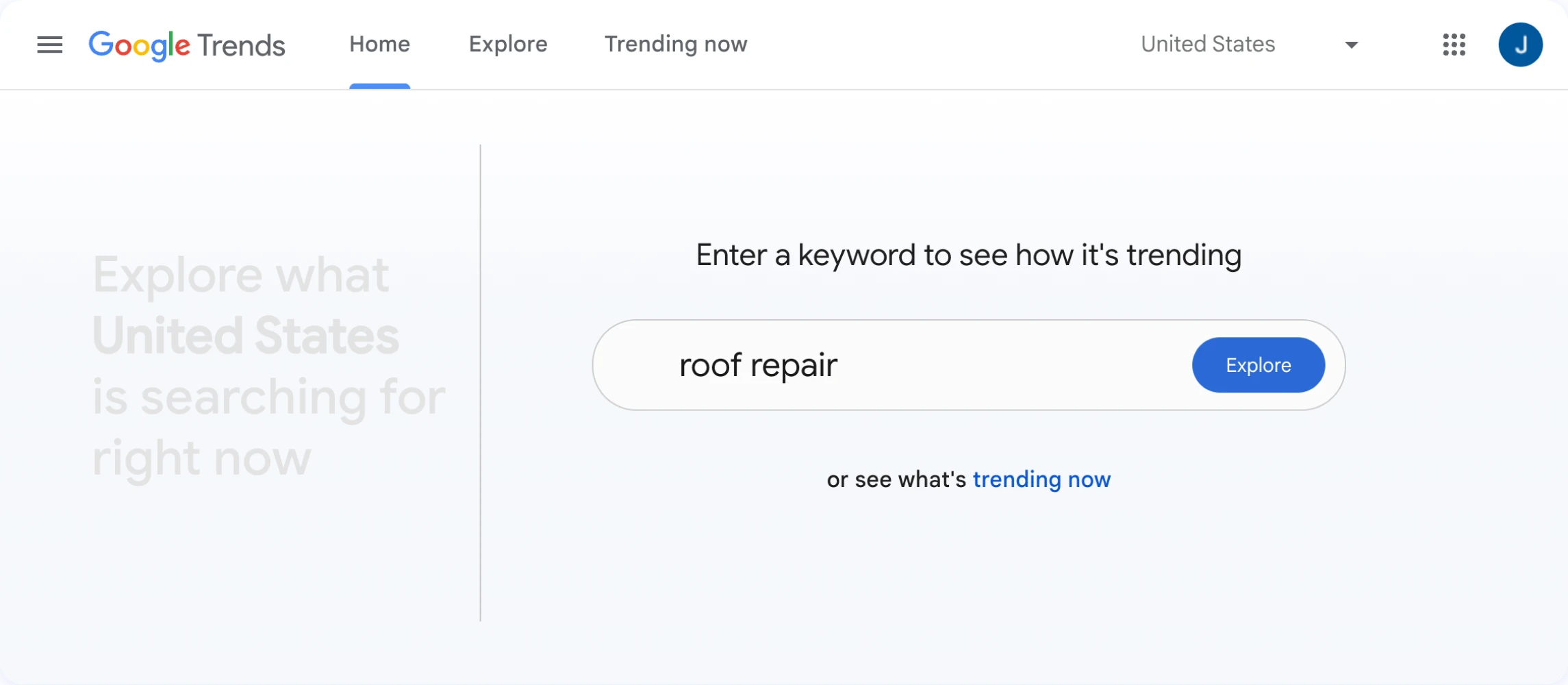
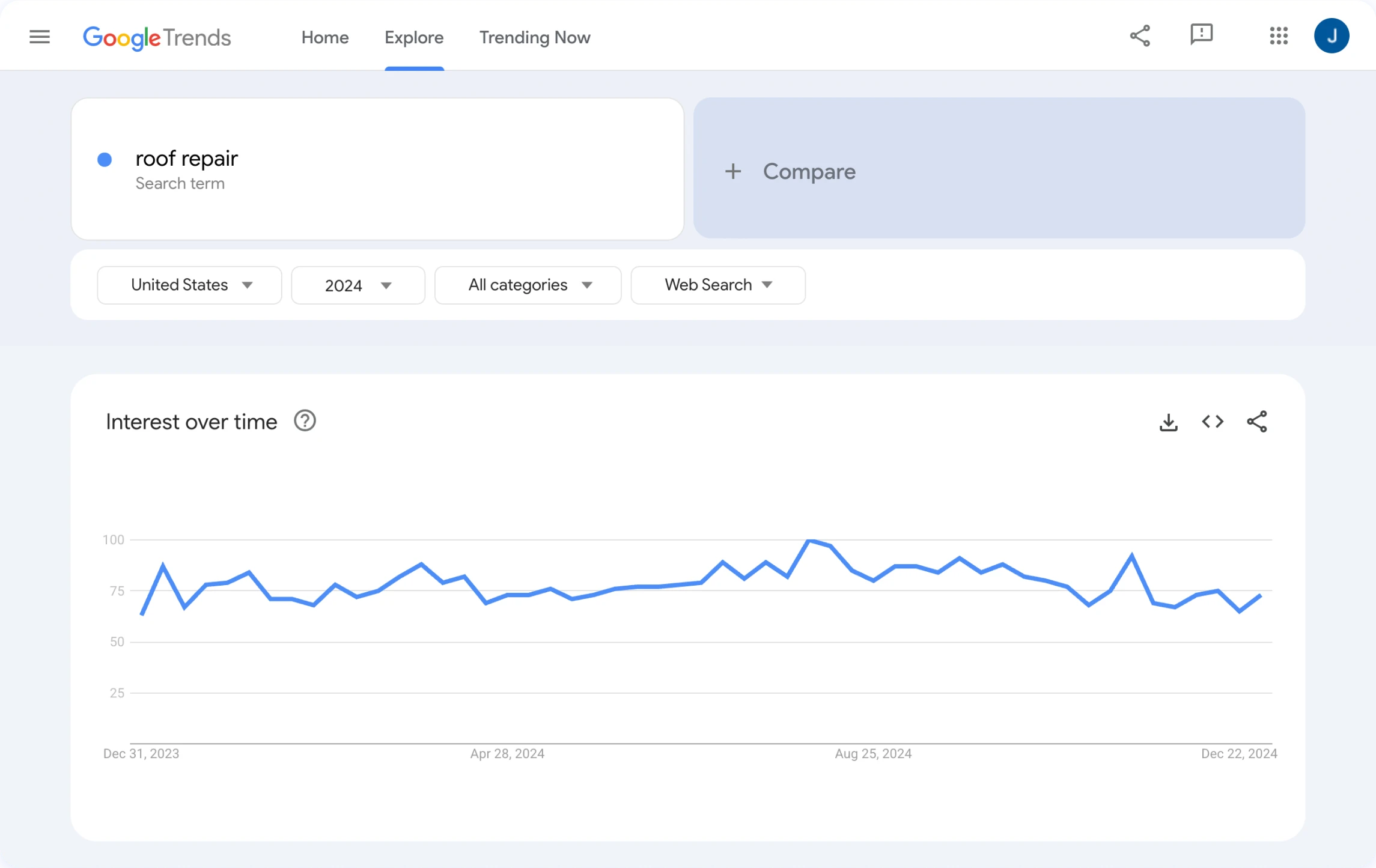

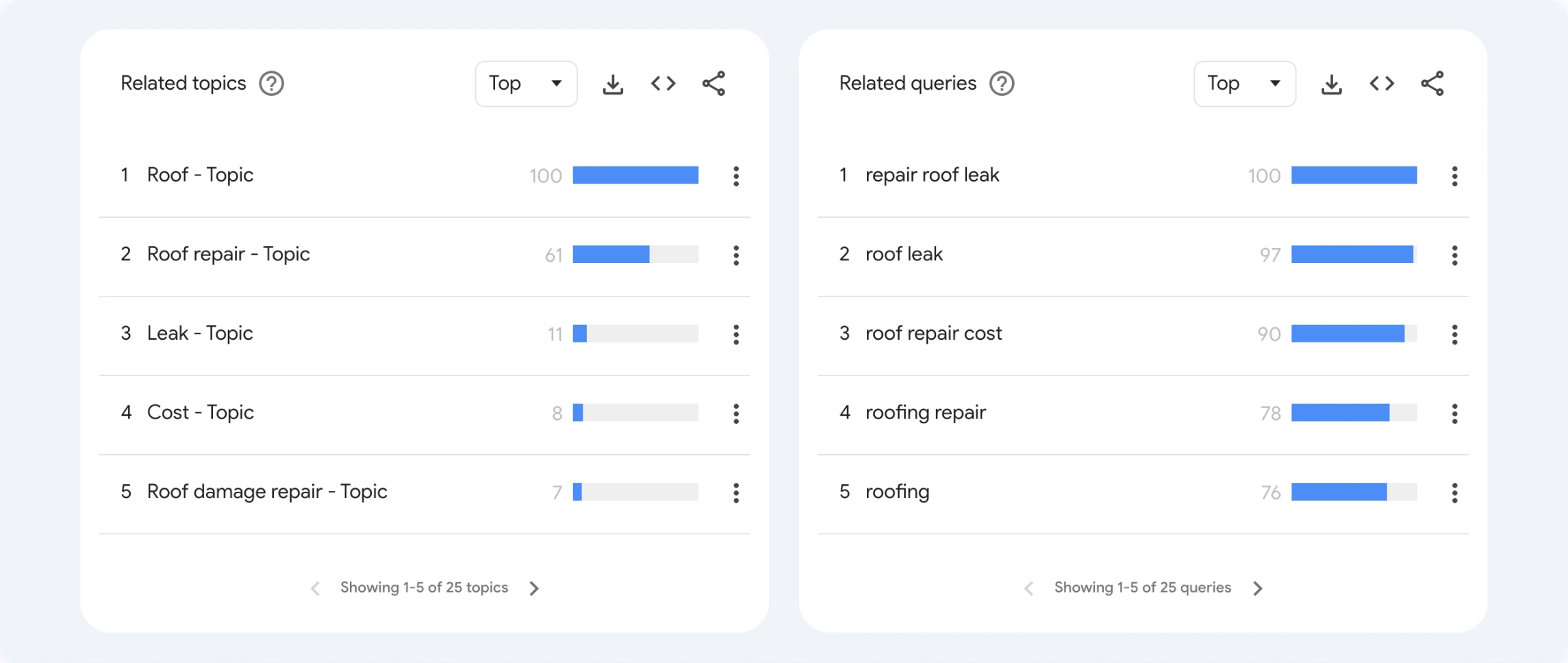
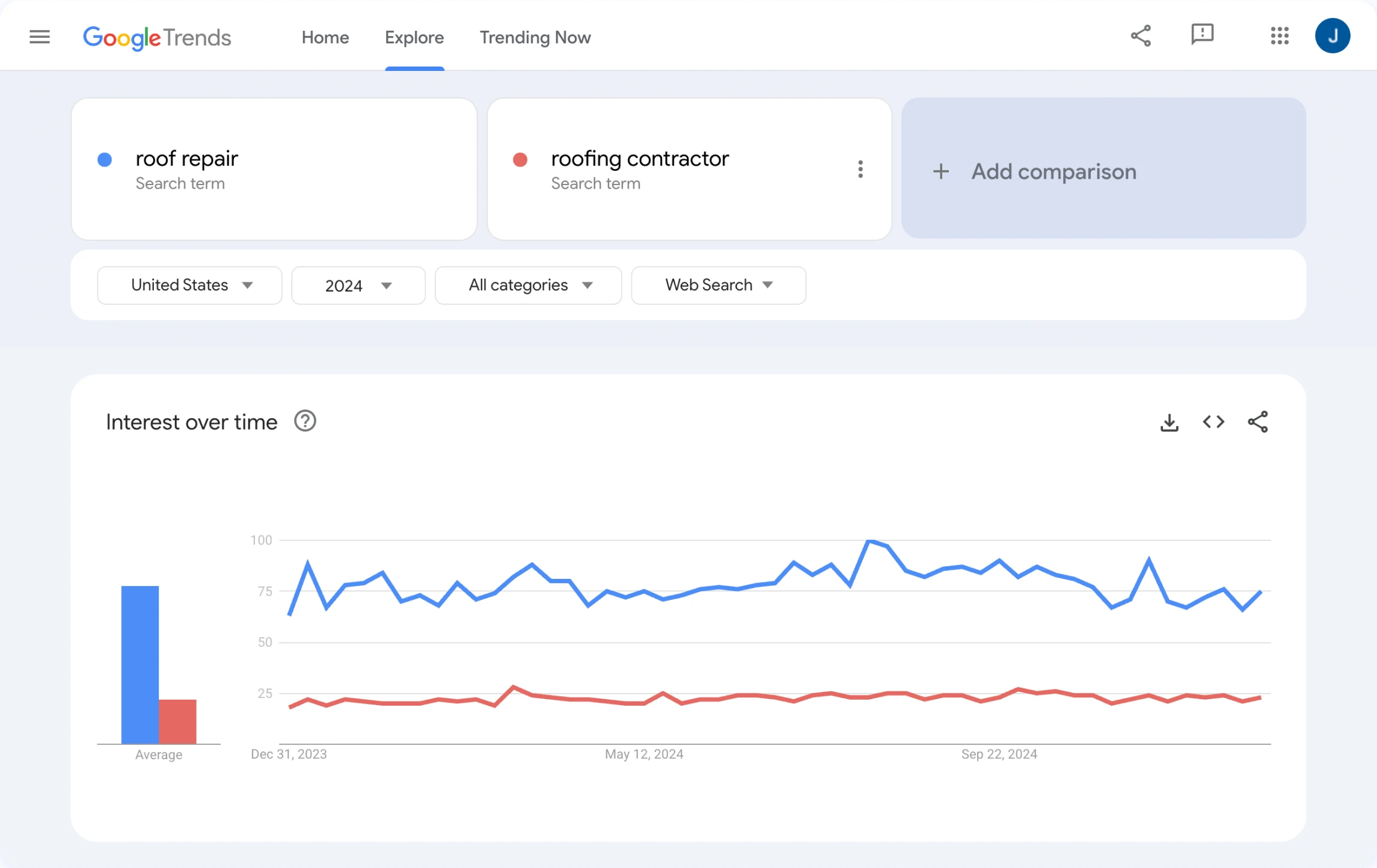
Google Autocomplete (Your Secret Weapon) Type your service + city and watch what Google suggests. These suggestions come from real searches in your area.
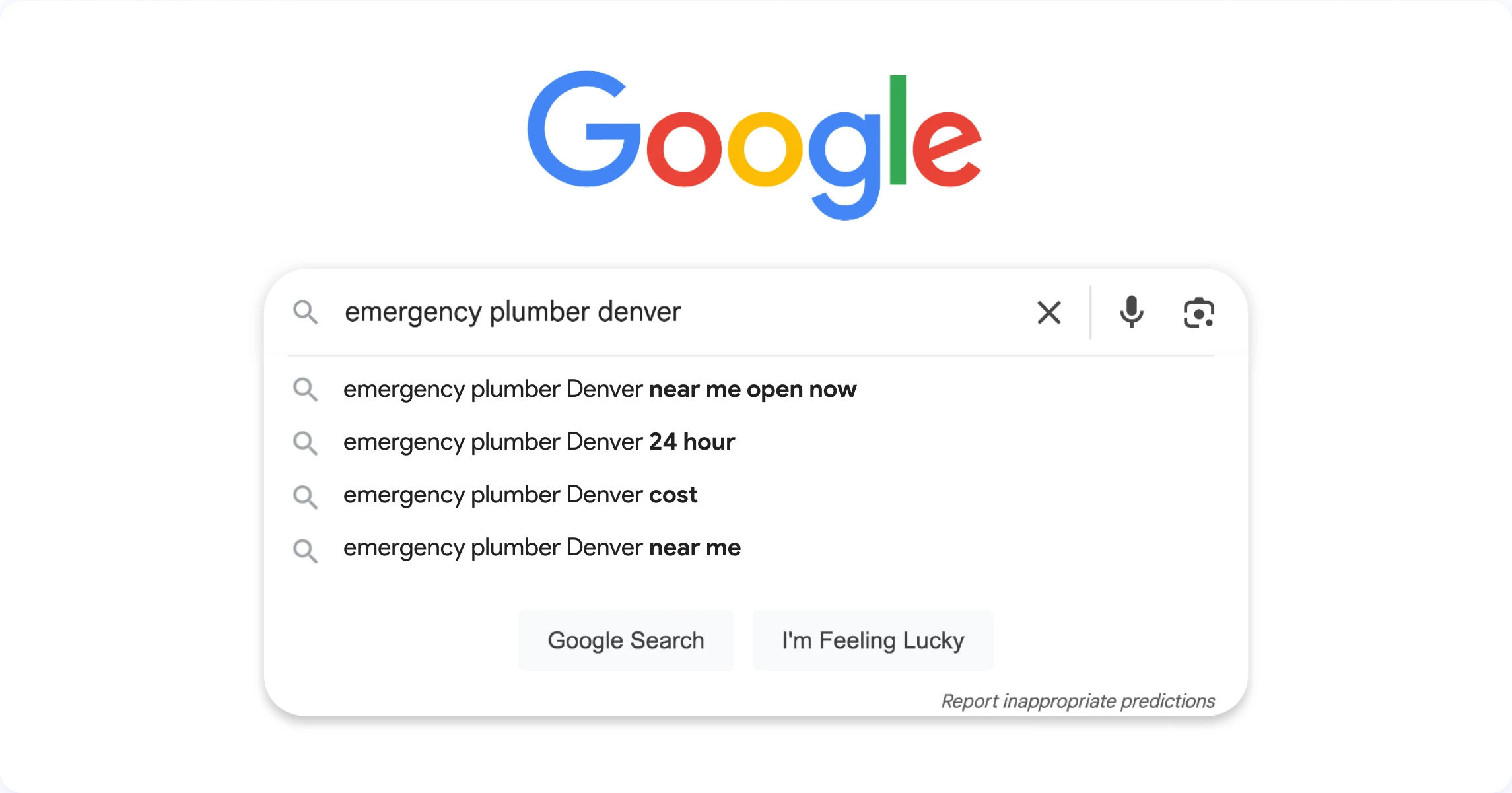
“People Also Ask” Questions When you search for your main keywords, Google shows real questions from your market. Screenshot these and create content around them.
Step 4: AI-Era Search Optimization
Here’s what many courses miss: search behavior has fundamentally changed with AI assistants and voice search becoming mainstream.
Conversational Search Patterns People now search like they’re talking to a helpful friend:
- “Where can I get my car inspected this weekend in Austin?”
- “I need a dentist who’s good with kids and takes my insurance”
- “Best pizza place that delivers to downtown and stays open late”
Natural Language Optimization Instead of fixating on exact keyword matches, focus on speaking naturally to your customers. If someone asks, “How much does roof repair cost?” don’t force “roof repair cost” into every sentence; answer their question naturally and comprehensively.
Intent-Based Content Strategy Modern search is about understanding what people actually want to accomplish:
- Informational intent: “How do I know if I need a new water heater?”
- Local intent: “Water heater repair near me”
- Commercial intent: “Best water heater installation company Denver”
- Transactional intent: “Emergency water heater replacement today”
Step 5: The 80-20 Keyword Priority System
Here’s a reality check: 80% of your revenue will come from 20% of your keywords. Focus intensely on those money-making terms instead of trying to rank for everything.
Tier 1 (Optimize FIRST):
- 3-5 primary keywords that directly drive revenue
- Include your location in all of them
- Medium competition with decent search volume
Tier 2 (Optimize SECOND):
- 10-15 secondary variations
- Problem-focused keywords that show buying intent
- Neighborhood-specific terms
Tier 3 (Long-term targets):
- 20+ long-tail phrases
- Seasonal keywords
- Expansion opportunities
Imagine a local auto repair shop that initially tried ranking for too many different keywords. They were spreading their efforts too thin and seeing mediocre results across the board. If they focused on just their top 8 money-making keywords first, like “brake repair Phoenix,” “oil change Scottsdale,” and “emergency auto repair Phoenix,” this focused approach could lead to significant increases in qualified service appointments because they’d be visible exactly when customers need them most.
Common Keyword Mistakes That Hurt Local Businesses
Mistake #1: Geographic Keyword Stuffing
- Wrong: “Denver plumber Denver Colorado plumbing services Denver Metro”
- Right: “Emergency Plumber in Denver - Fast Response Throughout Metro Area”
Mistake #2: Ignoring Neighborhood Names Many businesses only optimize for the main city and miss profitable neighborhood searches where competition might be lower.
Mistake #3: Focusing Only on Your Service Names Customers don’t search for “plumbing services,” they search for “toilet won’t flush” or “sink is backing up.”
Mistake #4: Copying National Competitors What works for Home Depot’s SEO strategy won’t work for your local hardware store. Focus on local customer language.
Hey there! Welcome back to our Complete Local SEO Course!
Your homepage is primed for conversion - you’re doing some amazing work! Now let’s make sure you’re attracting the right visitors in the first place. Today we’re tackling keyword research, and here’s the truth most business owners miss: successful keyword research isn’t about finding the highest search volume terms. It’s about discovering exactly how your customers describe their problems when they need help RIGHT NOW.
No expensive software needed here - just smart detective work that gets real results. Because here’s what happens when you get this right - instead of getting random website visitors who aren’t ready to buy, you start attracting people who are actively looking for exactly what you offer.
How has modern search behavior completely changed?
So search has evolved dramatically, and most businesses are still optimizing for the old way people used to search. People don’t just type “plumber” anymore. They ask complete questions or describe their exact situation, just like they would if they were talking to a friend.
Traditional searches were “dentist.” Modern AI-influenced searches? “dentist who takes my insurance and has weekend hours.” See how much more specific that is? The person searching that way knows exactly what they want and they’re ready to make an appointment.
Traditional searches were “auto repair.” Modern conversational searches? “my car is making a grinding noise when I brake.” This person has a specific problem and they need it fixed now.
This shift means we need to think beyond simple keywords and focus on the complete customer journey. We need to understand not just what they’re looking for, but why they’re looking for it and what their specific situation is.
How do you become a customer conversation detective?
Alright, before touching any tools, you’re going to become a detective in your own business. And this is where the real gold is hidden - in the actual words your customers use when they have problems.
Start with what I call the phone call method. For one week, write down exactly how customers describe their problems when they call. Don’t filter their language - capture their exact words. This is incredibly important because the way people talk is often different from how they write, but voice search is making spoken language more important for SEO.
Here are some real examples from local businesses, and these will probably sound familiar. HVAC company customers say “AC not blowing cold air” - not “air conditioning repair.” That’s because they’re describing the symptom, not diagnosing the solution. Dental patients say “tooth hurts really bad” - not “emergency dental services.” They’re describing their pain, not the type of service they need. Auto repair customers say “car won’t start” - not “automotive diagnostics.” They’re telling you what’s wrong, not what process they need.
This stuff is pure gold for your keyword research, because this is exactly how people search when they have urgent problems.
Next, try the review mining technique. Read through your Google reviews and competitor reviews. Look for patterns in how customers naturally describe their problems before hiring you, what service they actually needed, and how they found you. Reviews are like a treasure trove of customer language because people write them after they’ve had the experience, so they use very specific, emotional language.
Also use what I call digital conversation listening. Check local Facebook groups, Nextdoor discussions, and Reddit communities in your area. How do people ask for recommendations? What language do they use to describe problems? This gives you insight into how your potential customers talk when they’re not trying to impress anyone - just real people describing real problems.
How to turn customer language into keyword strategy?
Now let’s organize this customer language into a strategic plan that actually makes you money. Because having a list of keywords is useless unless you know how to prioritize them.
Primary keywords - these are your revenue drivers, and you want to focus on 3-5 keywords for starters. These should drive most of your income, so choose carefully. Think main service plus city like “plumber Denver.” This targets people who know they need a plumber in your area. Main service plus neighborhood such as “plumber Capitol Hill.” This is even more specific and often has less competition. And urgent variations like “emergency plumber Denver.” These are gold because people searching for emergency services are willing to pay premium prices.
Secondary keywords - your supporting cast, about 10-15 keywords to start with. These capture different ways customers search for the same thing. Service variations like “drain cleaning,” “pipe repair,” “water heater installation.” These target people who know exactly what service they need. Problem-focused terms like “clogged drain,” “leaky pipe,” “no hot water.” These target people who know what’s wrong but might not know the solution. And neighborhood variations like “plumber Highlands,” “plumber RiNo.” These help you dominate specific areas of your city.
Long-tail opportunities - these are your conversion champions, 20+ keywords. These longer phrases convert exceptionally well because they show clear intent - meaning the searcher knows exactly what they want and they’re ready to buy. Things like “emergency plumber Denver Sunday,” “water heater replacement cost Denver,” and “24h plumber downtown Denver.” These searches might have lower volume, but the people doing these searches are your ideal customers.
Which free tools actually help local businesses in keyword research?
You don’t need expensive software to do effective keyword research. Here are the free Google tools that deliver real insights, and we’ll tell you exactly how to use them.
Google Keyword Planner - it’s free with a Google Ads Account. Shows actual search volumes in your area, which helps you understand if enough people are searching for your keywords to make them worth targeting. Reveals related keywords you might miss, which often leads to discovering even more opportunities. And helps you understand seasonal trends, so you know when to focus on certain services.
Google Trends - completely free and incredibly powerful. Shows if search interest is growing or declining, which helps you focus on growing opportunities rather than dying ones. Compares different keyword variations, so you can see which version of a keyword is more popular. And reveals regional preferences within your market, which is crucial for local businesses.
Google Autocomplete - this is your secret weapon and it’s hiding in plain sight. Type your service plus city and watch what Google suggests. These suggestions come from real searches in your area, so they’re like a direct line into your customers’ minds. The fact that Google suggests these completions means lots of people are actually searching for them.
And don’t forget “People Also Ask” questions. When you search for your main keywords, Google shows real questions from your market. Screenshot these and create content around them, because these represent actual customer concerns and questions.
How do people search in the AI era we’re in?
Here’s what many courses miss - search behavior has fundamentally changed with AI assistants and voice search becoming mainstream. People are literally talking to their devices like they’re having conversations.
Conversational search patterns mean people now search like they’re talking to a helpful friend. Things like “Where can I get my car inspected this weekend in Austin?” Notice how natural and specific that is. “I need a dentist who’s good with kids and takes my insurance.” This person knows exactly what they need. “Best pizza place that delivers to downtown and stays open late.” They’re looking for a very specific solution to their current situation.
Natural language optimization is key. Instead of fixating on exact keyword matches, focus on speaking naturally to your customers. If someone asks, “How much does roof repair cost?” don’t force “roof repair cost” into every sentence. Answer their question naturally and comprehensively, using the language they (and you!) would use.
Intent-based content strategy matters because modern search is about understanding what people actually want to accomplish. Informational intent like “How do I know if I need a new water heater?” These people are in research mode. Local intent like “Water heater repair near me.” They know what they need and they’re looking for someone nearby. Commercial intent like “Best water heater installation company Denver.” They’re comparing options and ready to choose. And transactional intent like “Emergency water heater replacement today.” They’re ready to buy right now.
What’s this 80-20 keyword priority system?
Here’s a reality check that will save you tons of time and effort - 80% of your revenue will come from 20% of your keywords. So instead of trying to rank for everything, focus intensely on those money-making terms.
Tier 1 - optimize these first. 3 to 5 primary keywords that directly drive revenue. Include your location in all of them because you’re a local business. Target medium competition with decent search volume - you want keywords that people actually search for, but that aren’t so competitive that you’ll never rank.
Tier 2 - optimize these second. 10 to 15 secondary variations. Problem-focused keywords that show buying intent - people who have a specific problem are more likely to hire someone to fix it. Neighborhood-specific terms that help you dominate local areas.
Tier 3 - long-term targets. 20+ long-tail phrases that might not have huge volume but convert really well. Seasonal keywords that spike at certain times of year. Expansion opportunities as you grow your business.
What keyword mistakes are hurting local businesses?
Let me tell you about the mistakes that are costing local businesses customers every single day.
Mistake #1 - geographic keyword stuffing. Wrong: “Denver plumber Denver Colorado plumbing services Denver Metro.” This looks spammy and doesn’t help anyone. Right: “Emergency Plumber in Denver - Fast Response Throughout Metro Area.” This sounds natural and helpful.
Mistake #2 - ignoring neighborhood names. Many businesses only optimize for the main city and miss profitable neighborhood searches where competition might be lower. If you serve specific neighborhoods, make sure you’re targeting those areas specifically.
Mistake #3 - focusing only on your service names. Customers don’t search for “plumbing services.” They search for “toilet won’t flush” or “sink is backing up.” They describe problems, not solutions.
Mistake #4 - copying national competitors. What works for Home Depot’s SEO strategy won’t work for your local hardware store. Focus on local customer language and local problems.
Awesome work! You now know exactly how to speak your customers’ language and attract people who are ready to buy. In our next video, we’re tackling a problem that shocks most business owners - when your pages fight each other instead of working together. This can actually hurt your rankings without you even knowing it’s happening. Thanks for joining me today, and I’ll see you in the next video!
The websites and Google Business Profiles used throughout the course are for educational purposes only. We're not affiliated with these businesses and don't claim any endorsement from them. All trademarks belong to their owners. Some examples include visual changes (made with browser tools) to help illustrate the SEO concepts we're teaching. These edits are strictly local and illustrative of specific SEO concepts. They don't affect the original websites.
